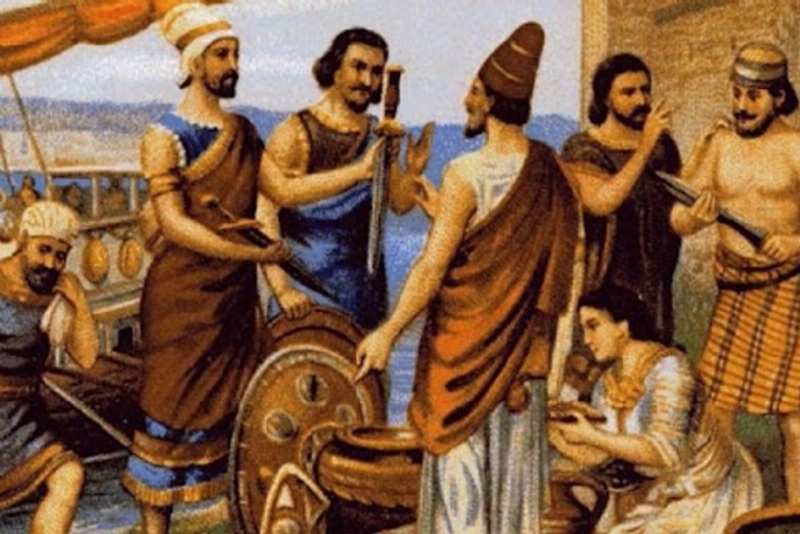Bajo de la Campana
Cartagena is the first Phoenician shipwreck excavated by archaeologists. The shipwreck, found in Bajo de la Campana, a sunken rock reef off the coast of Spain near the shipwreck, dates back about 2,700 years ago. According to studies, the ship ran aground many years ago and dumped its cargo on the seafloor. Several finds from the ship in this area were collected in a sea cave.
Findings from the Bajo de la Campana Ship
Archaeologists continued their shipwreck work under the direction of Mark Polzer and Juan Piñedo Reyes. During the engraving process, many ceramic and bronze artifacts were found. Pine nuts, amber, ivory, and lead ore were also found around the shipwreck. Also, the ship's hull parts were seized. The teeth found included specimens engraved with the Punic names of their owners.
The ship Balo de la Campana was heading west in search of goods. The shipwreck was a trading ship of an Eastern Mediterranean merchant who traveled to Cadiz, which was cut into archaeological studies. Most of the finds were raw goods, such as ivory and lead ore, obtained by ship's crews by trading with indigenous people in this part of Spain. These goods provided a lot of information about the sunken ship.
Work on the Sunken Ship Continues
The shipwreck in the Bajo de la Campana region, named after the area where it is located, was moved to the Cartagena Underwater Archeology Museum. Here, archaeologists; It is still being analyzed by Polzer and Piñedo. Thanks to these studies, the successful team has already managed to get evidence of a wide maritime trade network.
Bajo de la Campana proves that trade was made through sea-related cultures, such as the earlier Gelidonya Cape and Uluburun ships. Besides, researches show that these ships helped establish trade empires. Studies on the establishment of maritime trade empires show that; this has been instrumental in the growth of many societies such as the Phoenicians.
Developing with maritime trade, the Phoenicians dominated the Western Mediterranean. They founded port cities and colonies such as Cartago Nuovo, now called Cartagena. Growing up, they clashed with Rome's growing power. Although they left sunken ships such as the Bajo de la Campana, the Phoenicians managed to be strong in the seas. The Phoenicians held power for a considerable time, but when Rome grew stronger, they perished.

